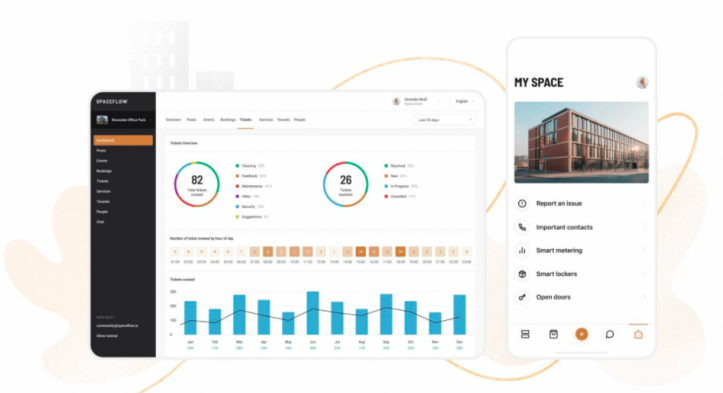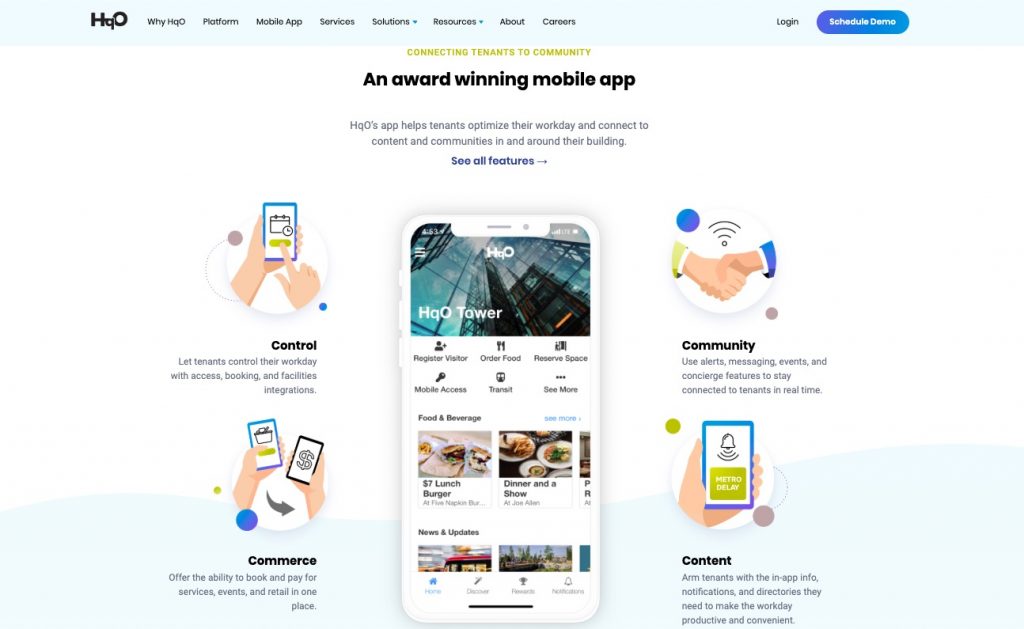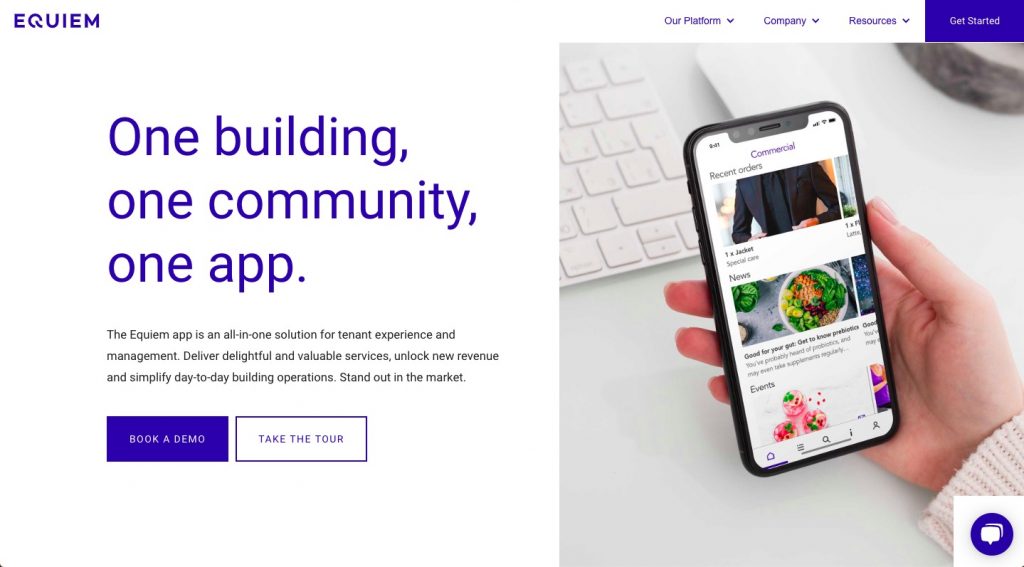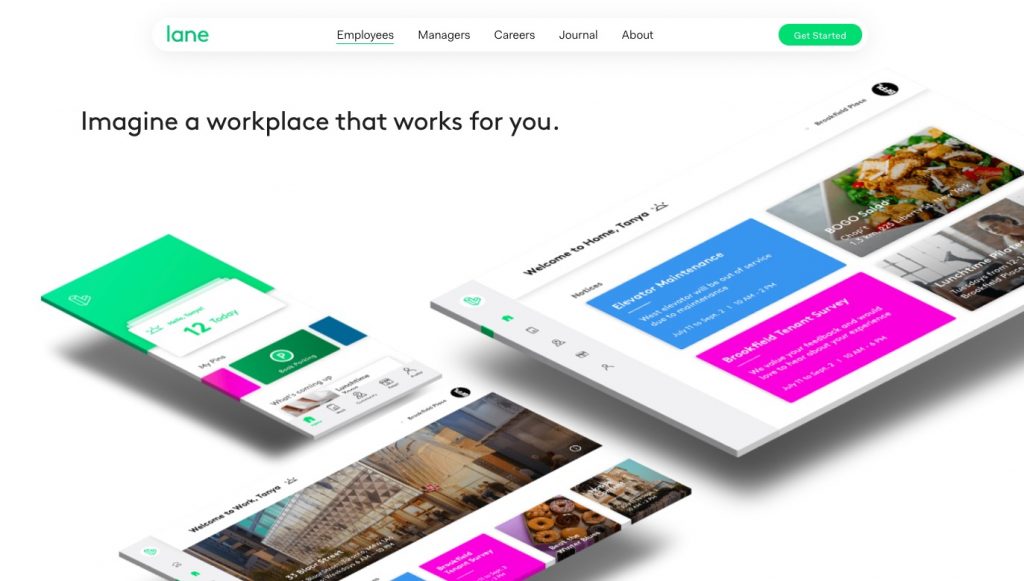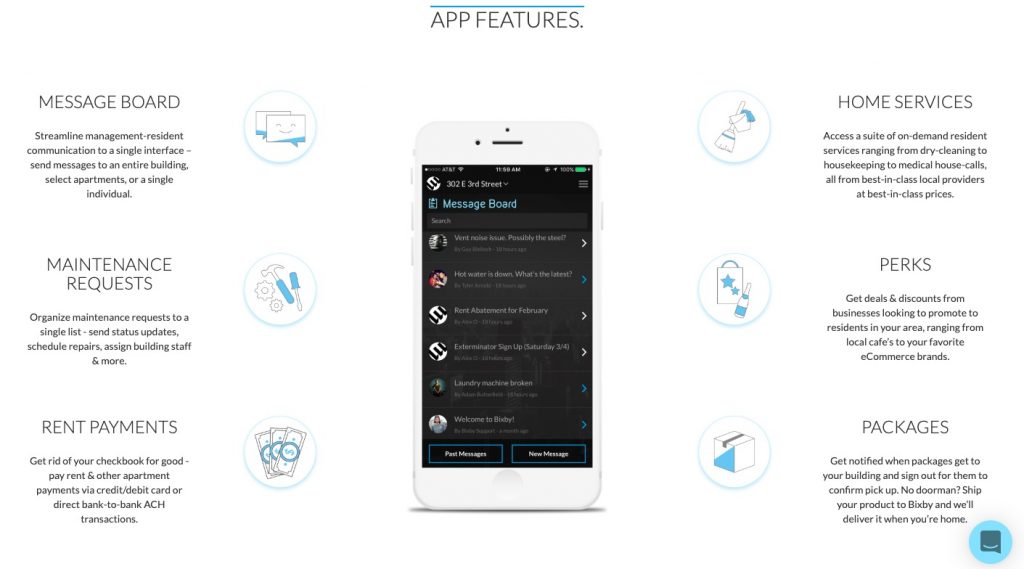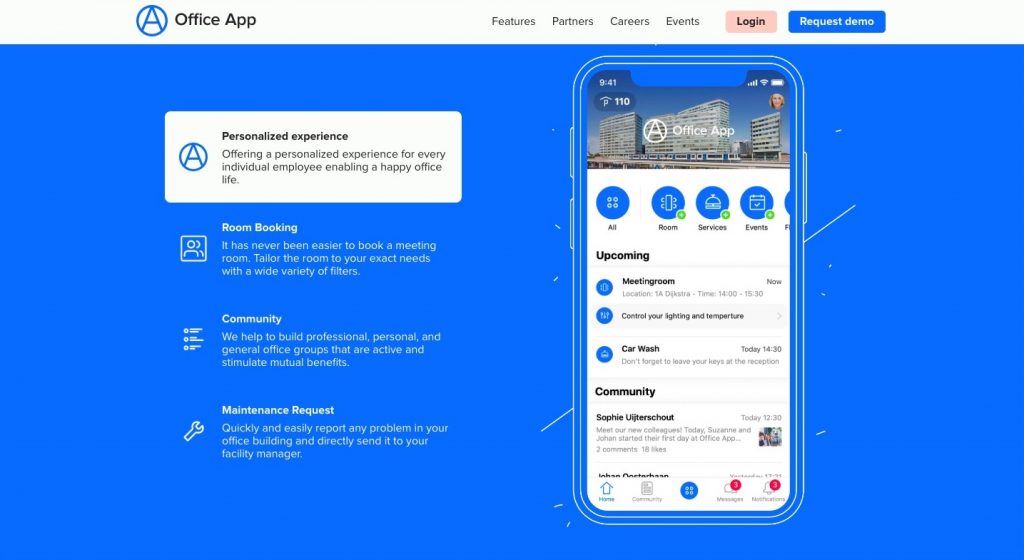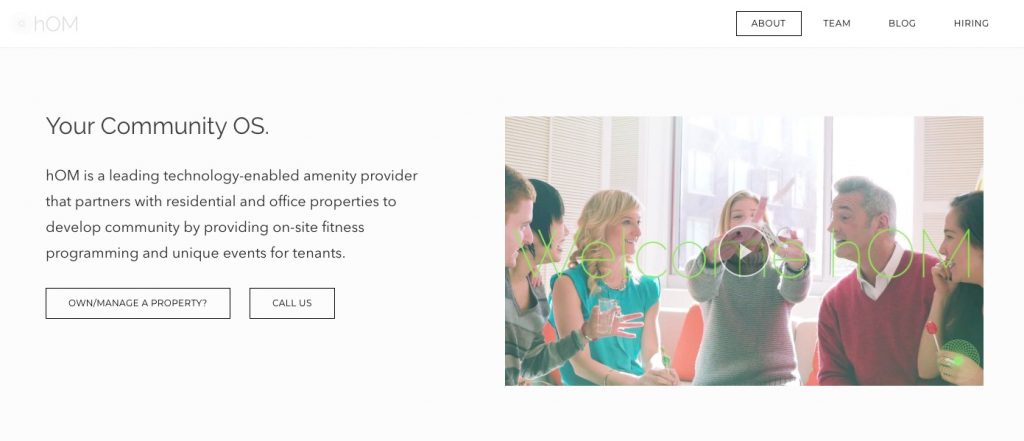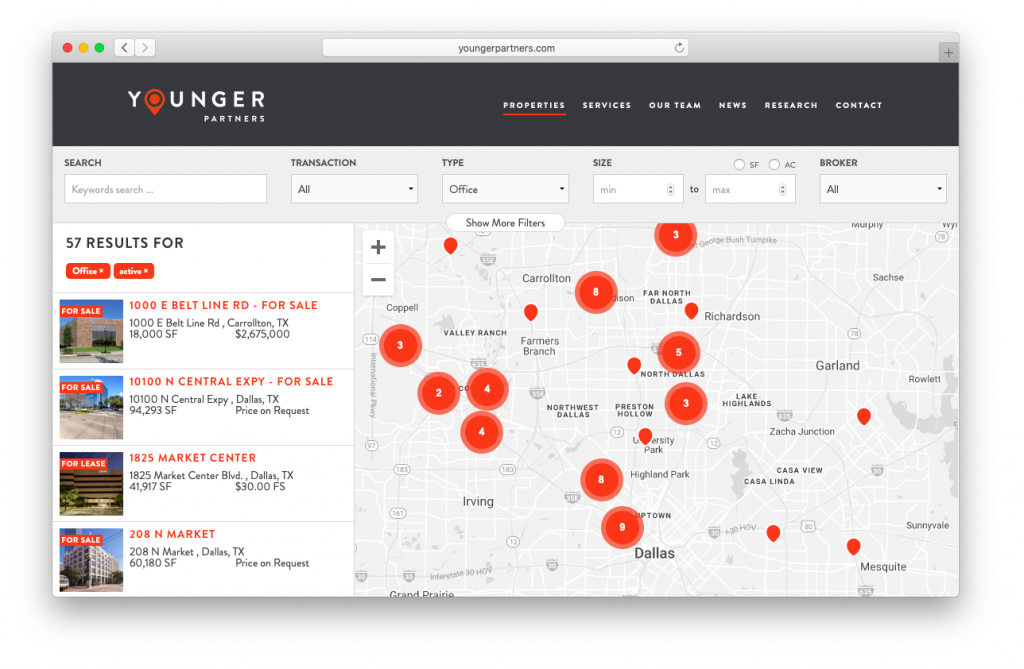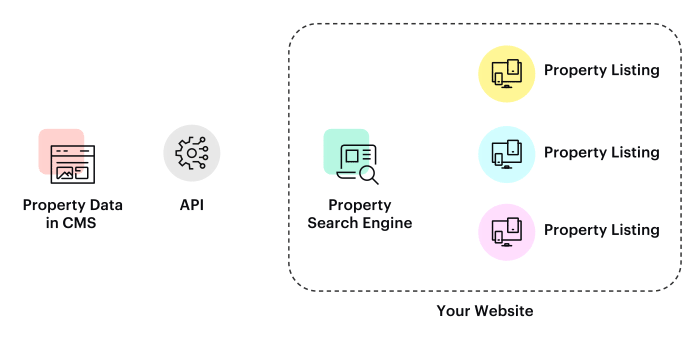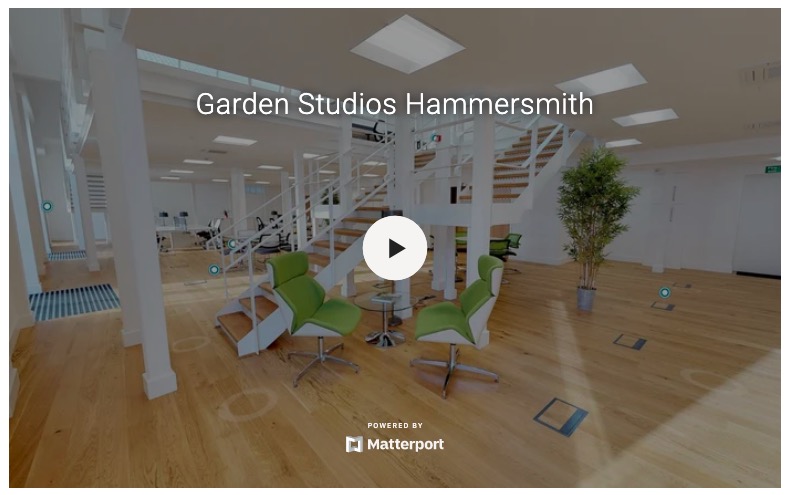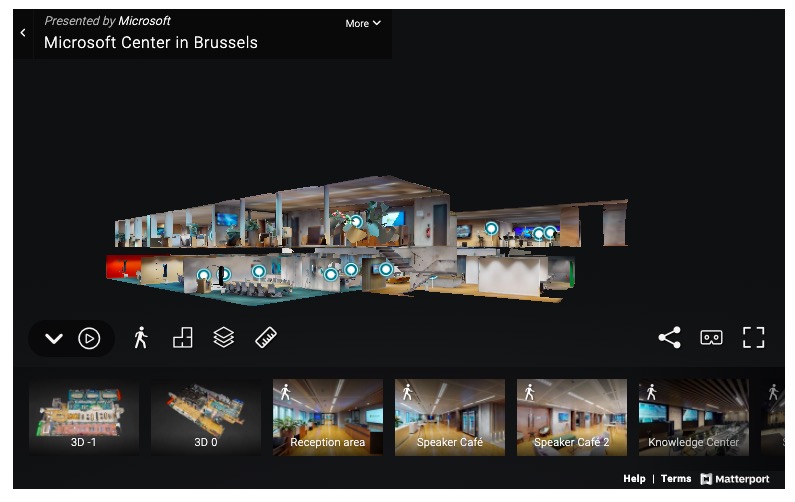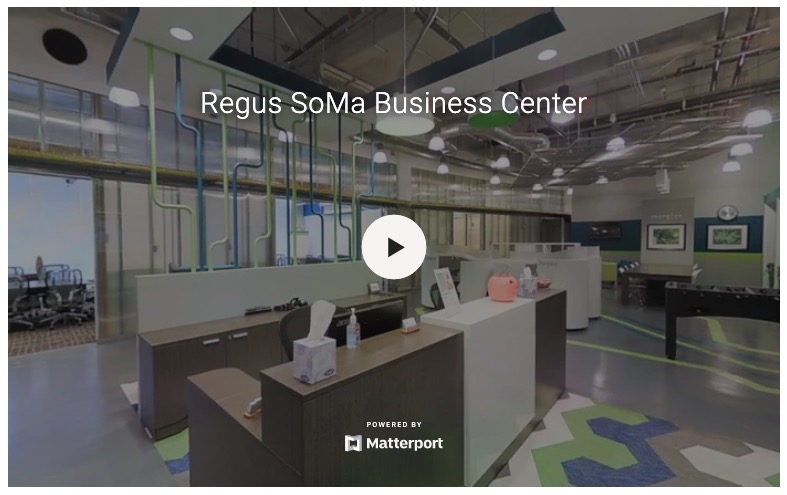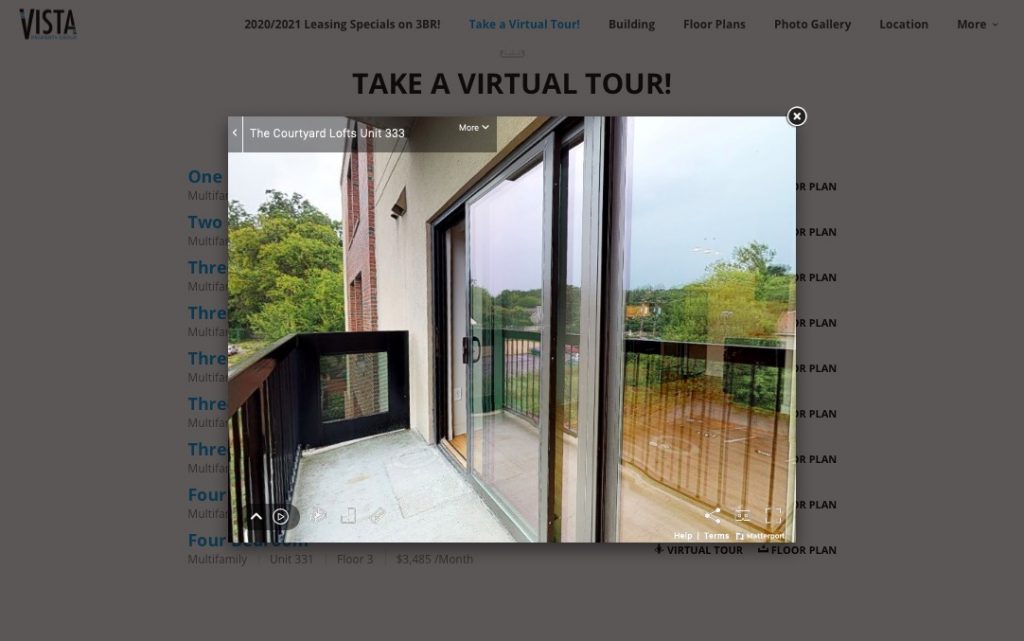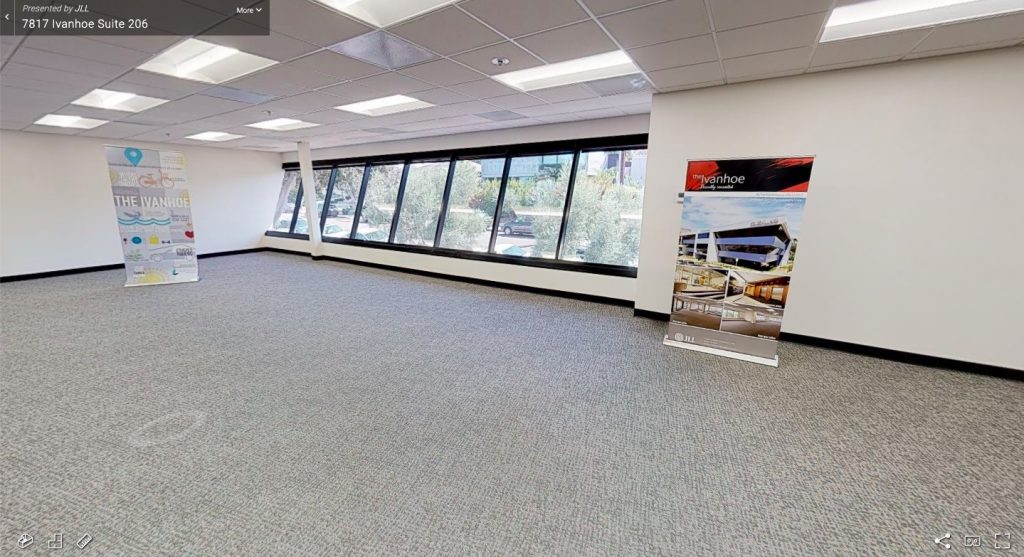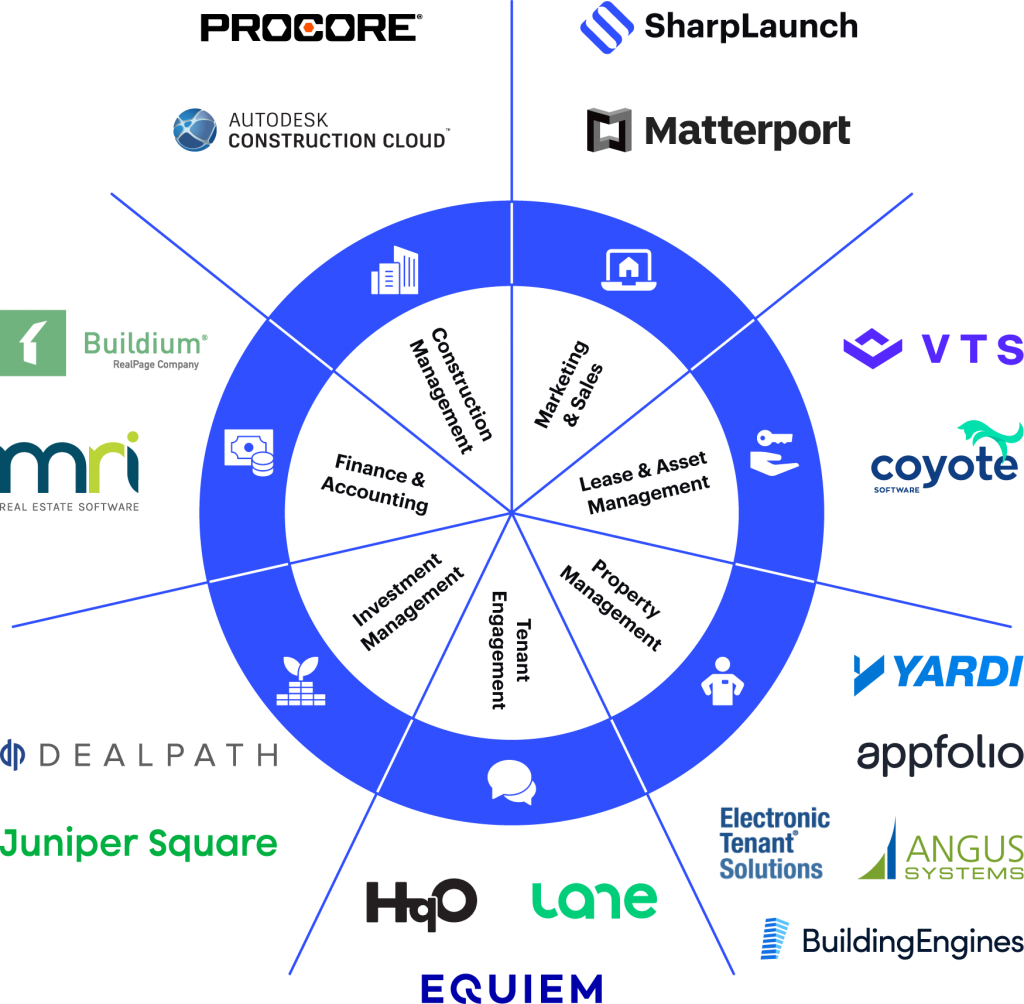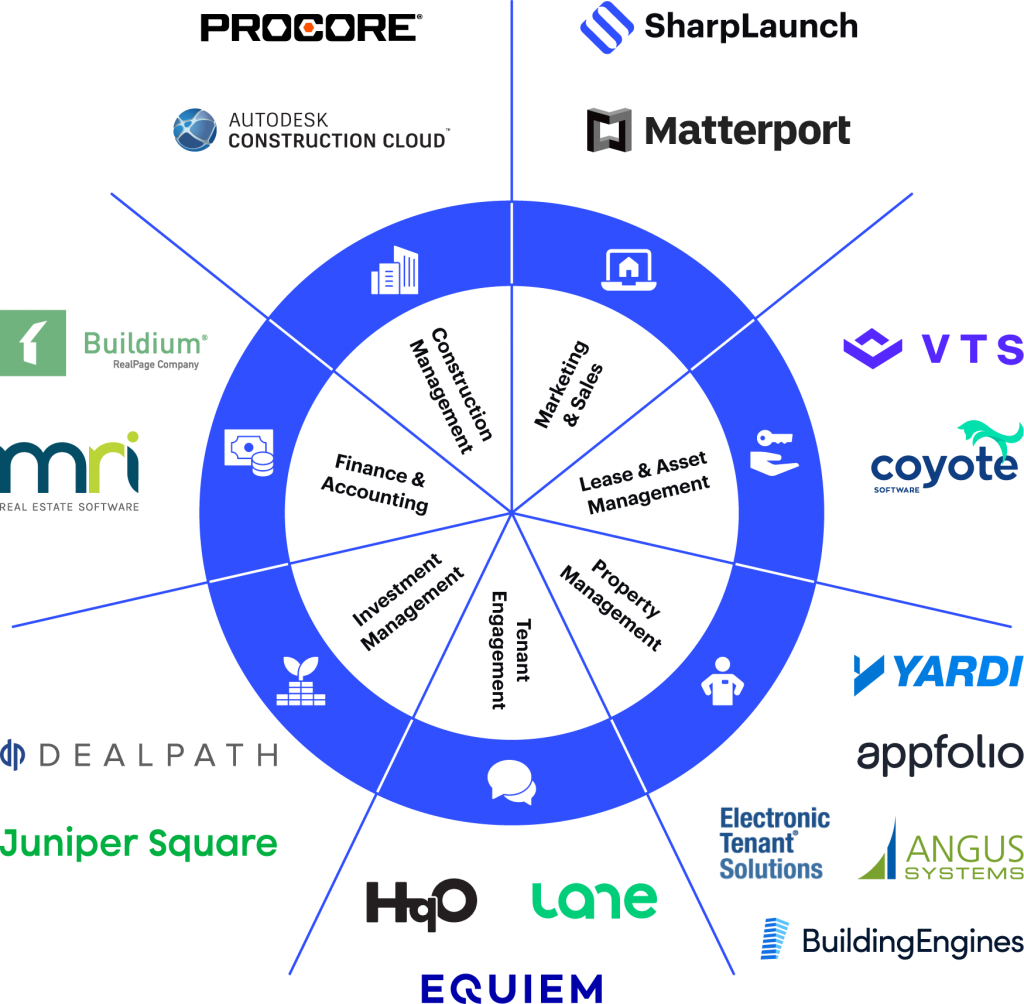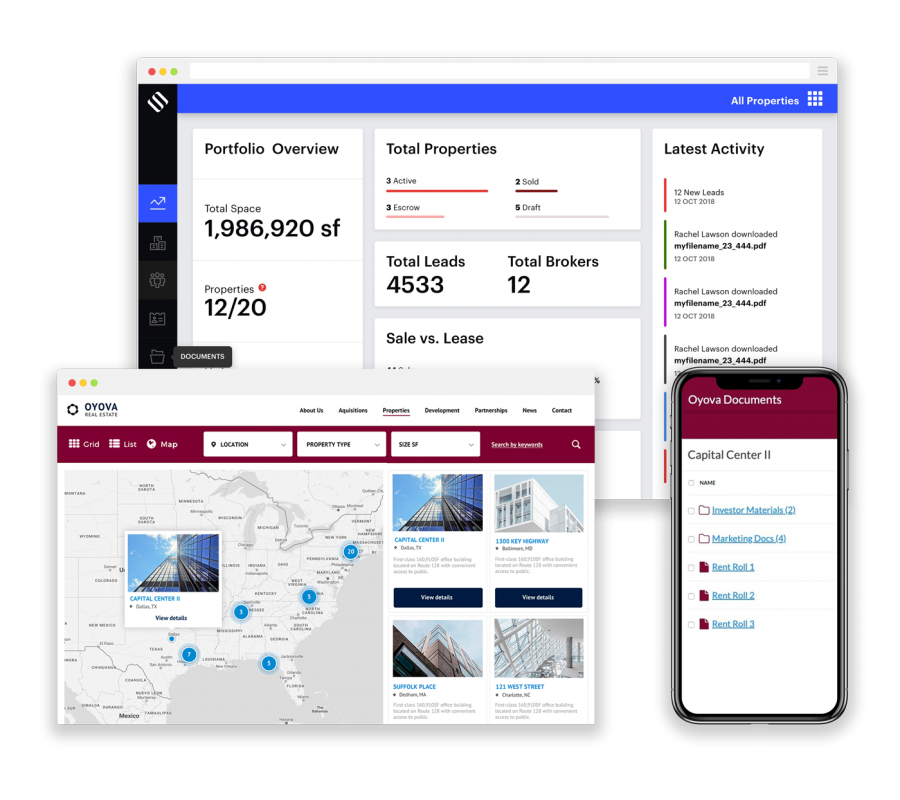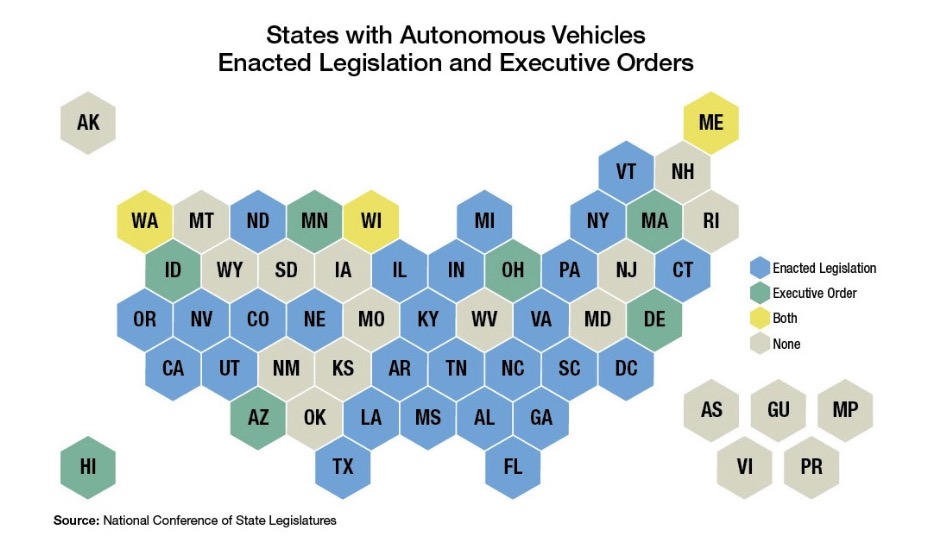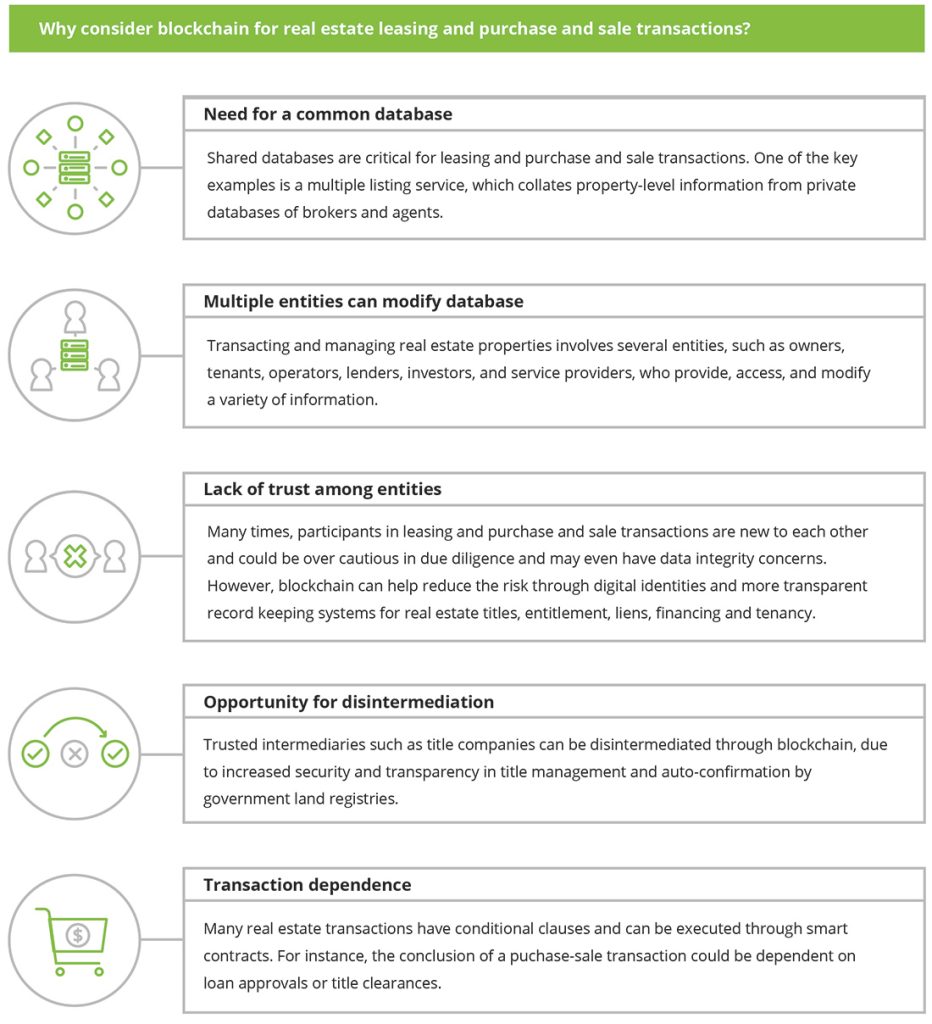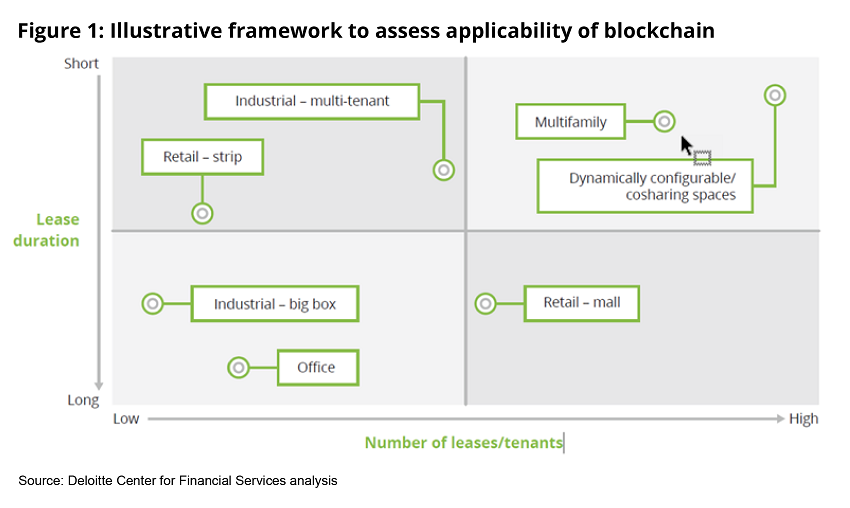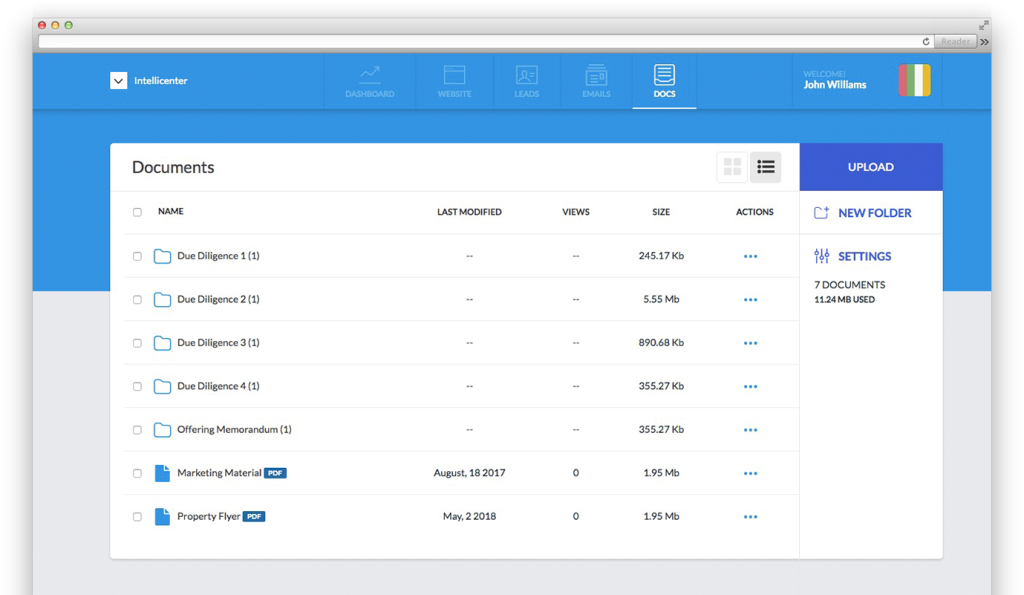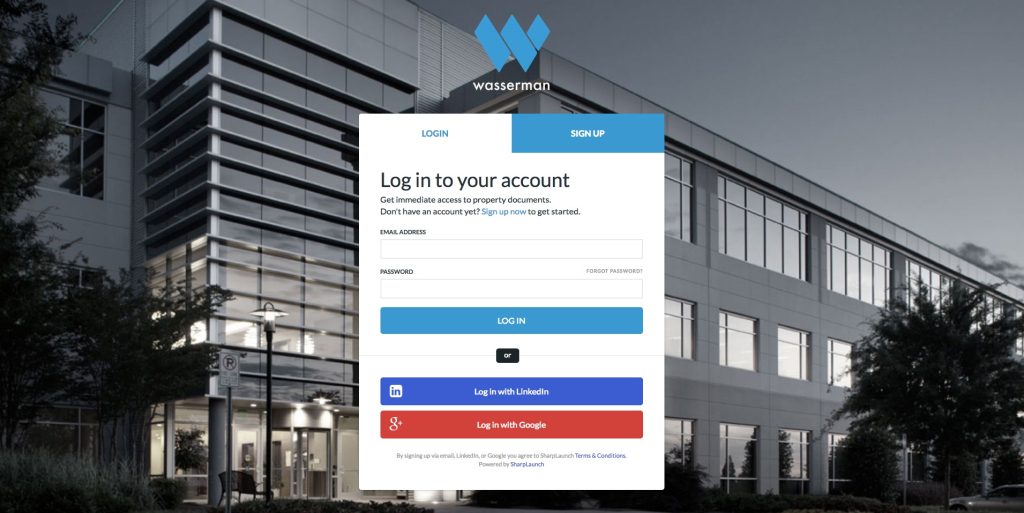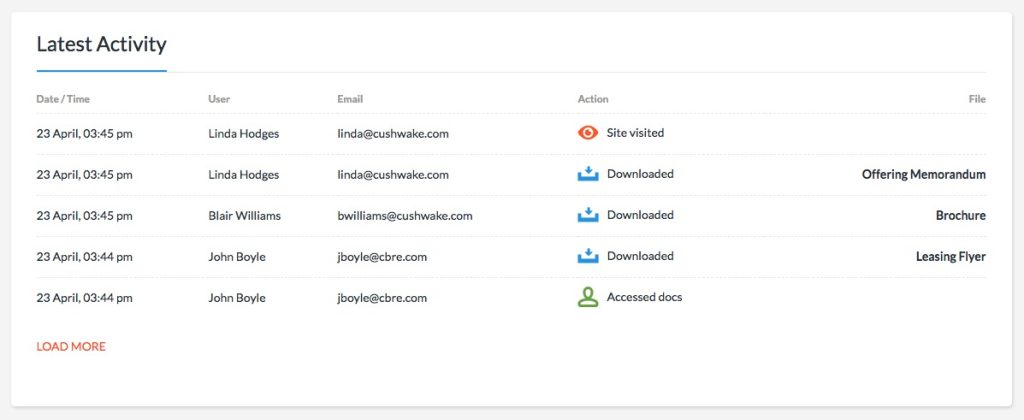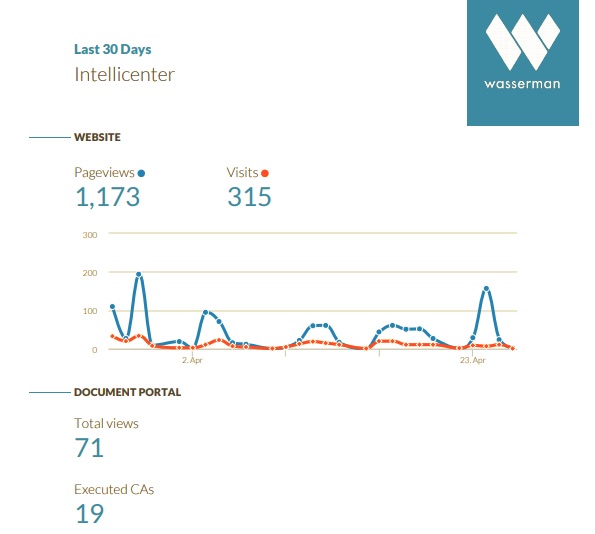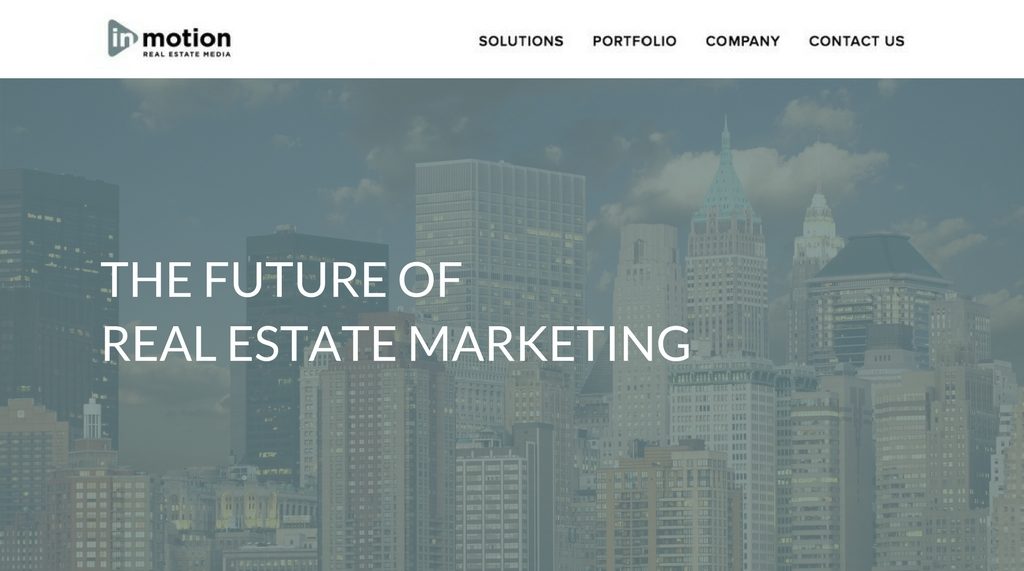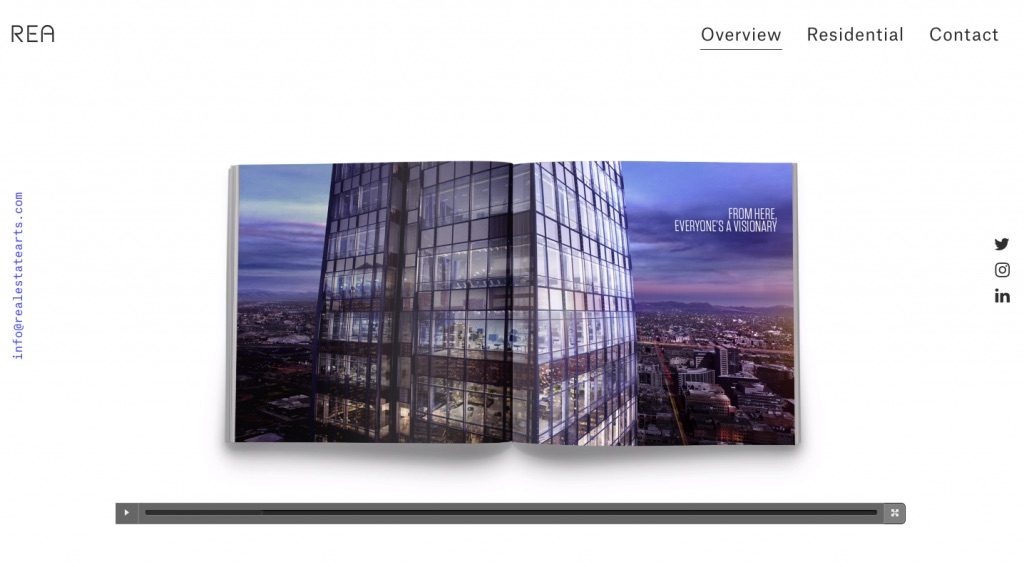Tenant experience software and apps empower both property owners and tenants.
On the owner side, they give you unparalleled data about your property. With detailed insights on tenant satisfaction, overall space usage, amenity demand, and more, you can better monetize your building and drive long-term retention and revenues.
For tenants, they mean easier rent payments, more accessible amenities, and a more convenient leasing experience as a whole. They also encourage a better sense of community and give businesses an edge when recruiting and retaining talent.
Are you looking for a way to differentiate your building experience and keep long-term tenants in the fold? Tenant experience software can help.
Here are the top 11 tenant experience (TeX) tools you’ll want on your radar:
HqO
HqO is a tenant experience platform that helps owners of commercial real estate deliver a transformative experience for users of their space. It’s a command center that unifies building technology and data for individual assets and across global portfolios.
The platform powers HqO’s tenant experience mobile app, which puts new conveniences, amenities, and a sense of community directly into the tenants’ hands. With a white label building app tenants can use features like: space booking, building access, visitor management, parking and transit, event and amenity booking, and order-ahead at on-site restaurants, retailers, and service providers.
Bengie (Building Engines)
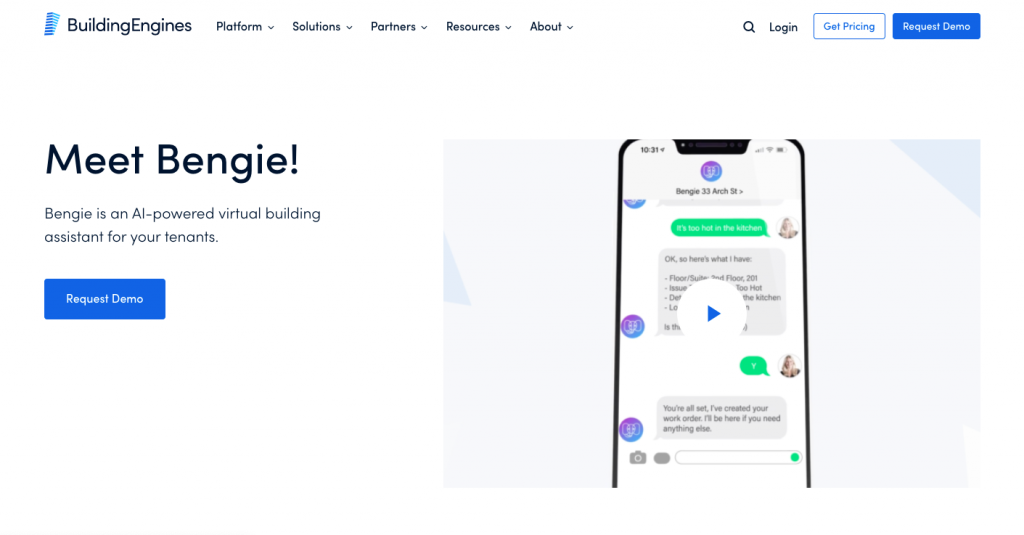
Building Engines’ Bengie is the easiest way for tenants and property management teams to communicate with each other through the tools they already use every day such as text messaging. Tenants can quickly and simply make service requests and register visitors through Bengie, while property managers can communicate building wide announcements directly to their tenants’ mobile devices. All without downloading yet another mobile application or the need to fill out complex web forms. Bengie represents the next evolution of tenant self-service and an improved user-experience while reducing administrative work for property management teams.
Equiem
Equiem offers tenant communications and space reservations like most apps, but it also ups the ante a bit, enabling new revenue streams through its built-in ecommerce platform, services marketplace, and vendor management system. It also comes with pre-loaded news and other content that can be shared with tenants, as well as automated email newsletters to keep lines of communication open.
Comfy
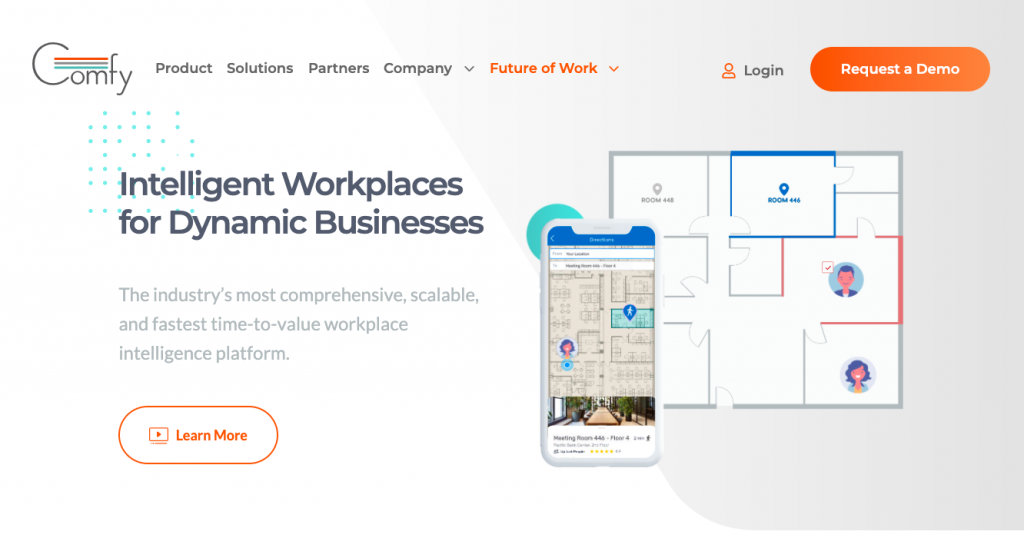
Designed specifically for office buildings and workplaces, Comfy lets tenants book meeting and presentation spaces and control their area’s temperature and lighting. There are also built-in maps and navigational instructions for getting around the office — a huge perk if your buildings are on the larger side.
Spaceflow
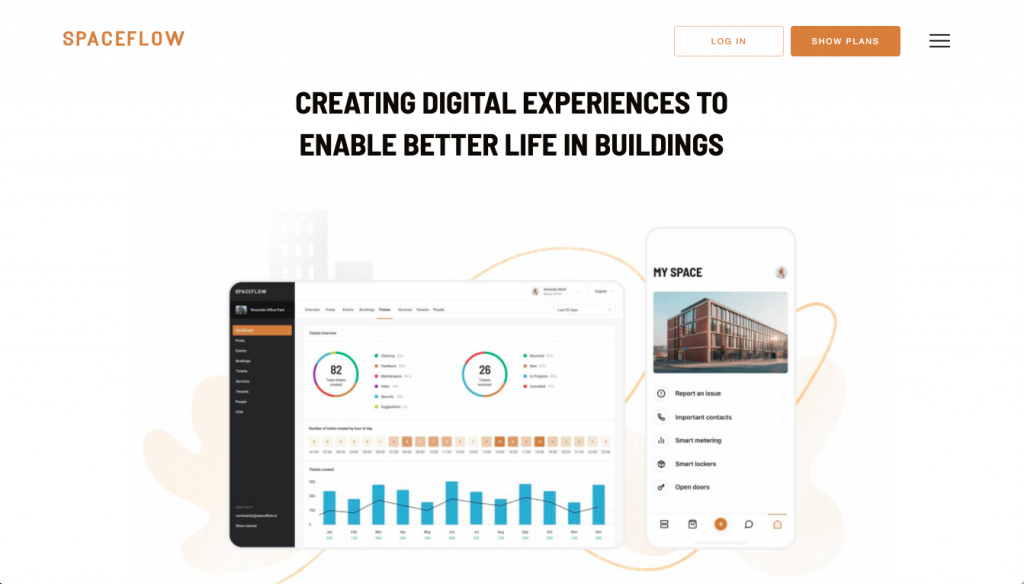
Spaceflow helps landlords to attract and retain top tenants by combining the tenant experience platform and community management.
Spaceflow creates a “space-as-a-service” experience that allows landlords and space operators to customize services and improve tenant satisfaction. Occupants have amenities, services and community life just one click away in the mobile app and community managers ensure the best experience possible – through attractive content, events and personal communication.
Sharry
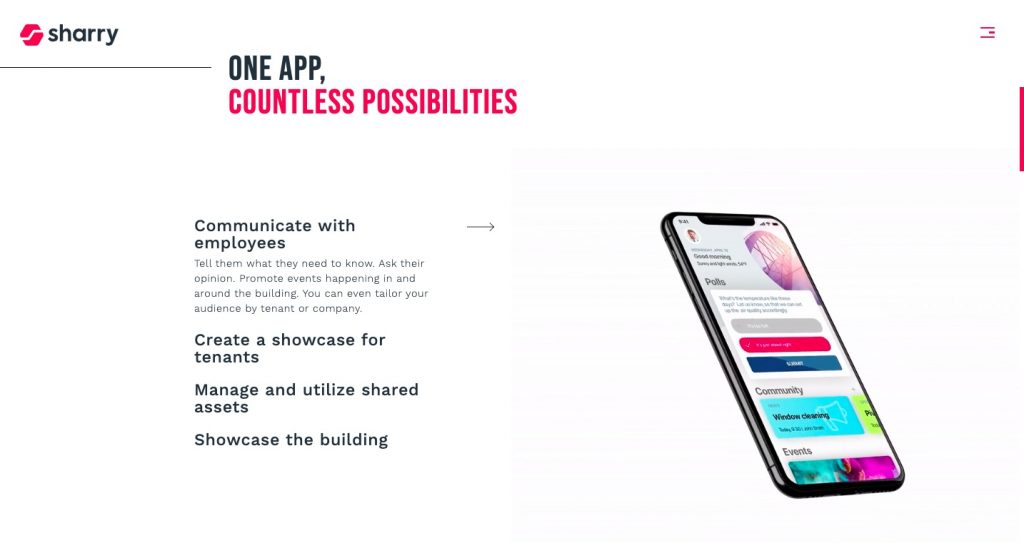
Sharry is a PropTech developer of innovative software for premium office buildings based out of Prague, operating in Central Europe.
They specialize in integration of smart solutions such as access, parking, digital signages, community app or shared services.
Lane
The Lane app aims to streamline core building activities by enabling instant communication and automating processes like guest registration, parking, maintenance, on-site screens/displays, and building access. Tenants can also use it to book rooms, enroll in events or programs, or take advantage of concierge services, while landlords can send out news updates, launch tenant appreciation events, and even enable loyalty programs or special offers.
Rise Buildings
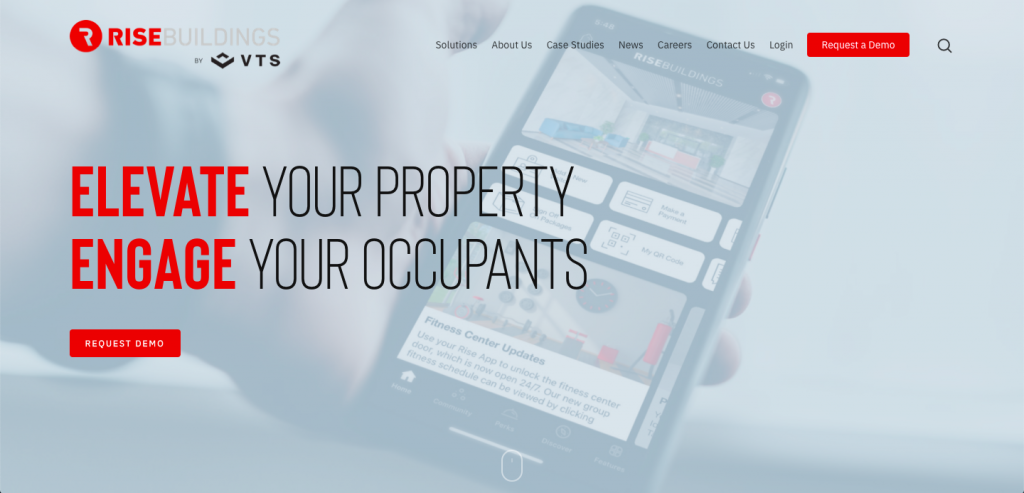
Rise Buildings (acquired by VTS) is a robust occupant experience and property operations platform that consolidates multiple software and hardware solutions into one, fully-integrated platform.
With seamless access, a captivating user experience, robust operations tools, and advanced capabilities, the Rise Buildings native platform replaces all other property technology solutions – improving staff efficiency, elevating occupant experience, and increasing NOI.
Bixby
Bixby streamlines rent payments, maintenance requests, and repairs with a single, handy app. There’s also a community message board for instant communication, as well as an amenity marketplace where tenants can book dry cleaning, dog walking, and other local services to improve their experience.
Office App
Office App is designed for professional and office space tenants, offering on-demand room booking, maintenance requests, food ordering, and more. It also allows for real-time availability and occupancy updates throughout the building and parking lot, as well as full access control. There are also built-in messaging features, public transport updates, and floor plans.
hOM
hOM is a technology-enabled amenity provider that partners with residential and office properties to provide on-site fitness programming and unique events for tenants.
Healthy employees reduce benefit spend and are more productive at work — and your tenants want to encourage both.
The Bottom Line
Technology can improve your tenants’ experience, reduce your workload, and serve as a valuable marketing tool to bring in new customers.
